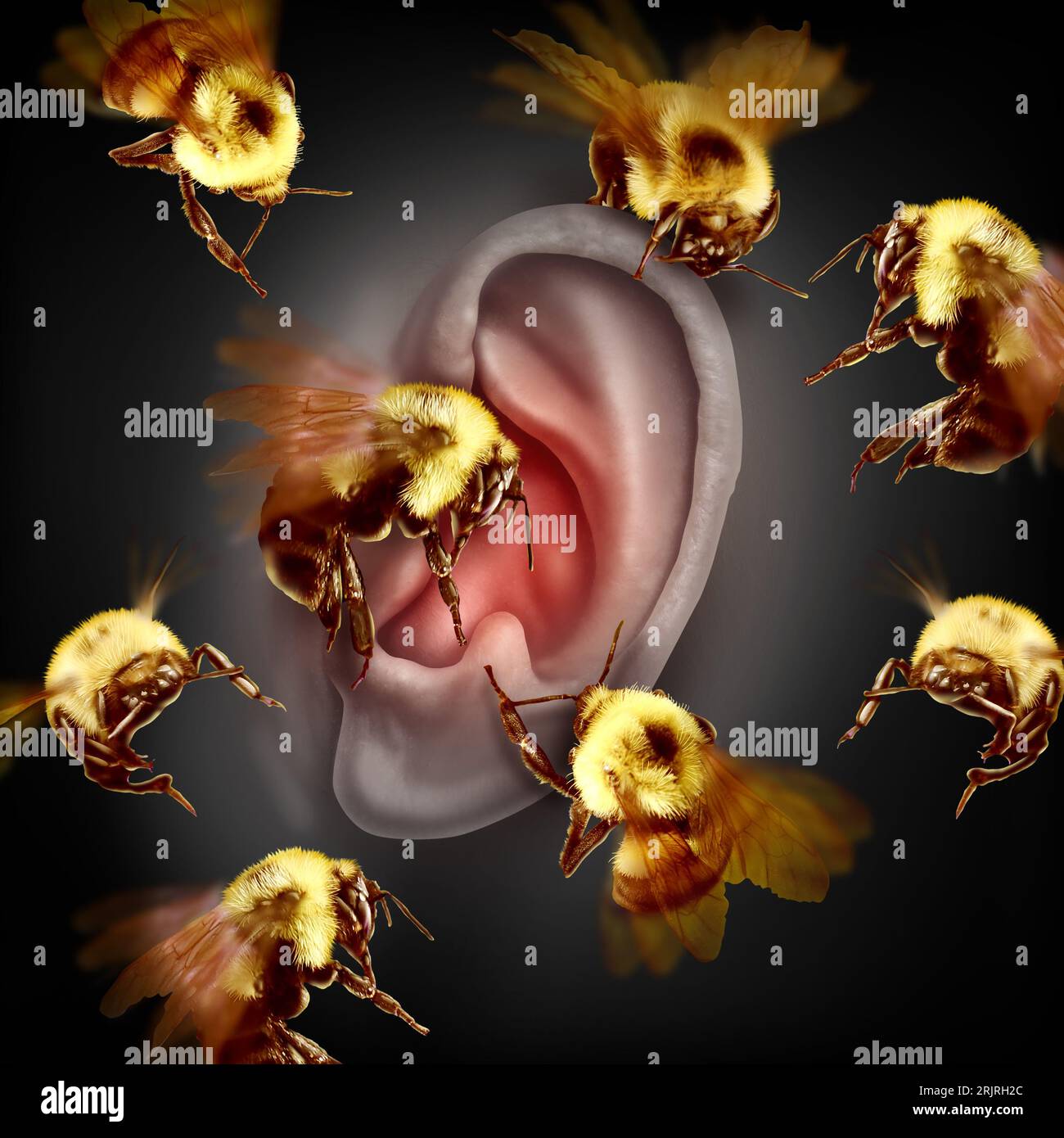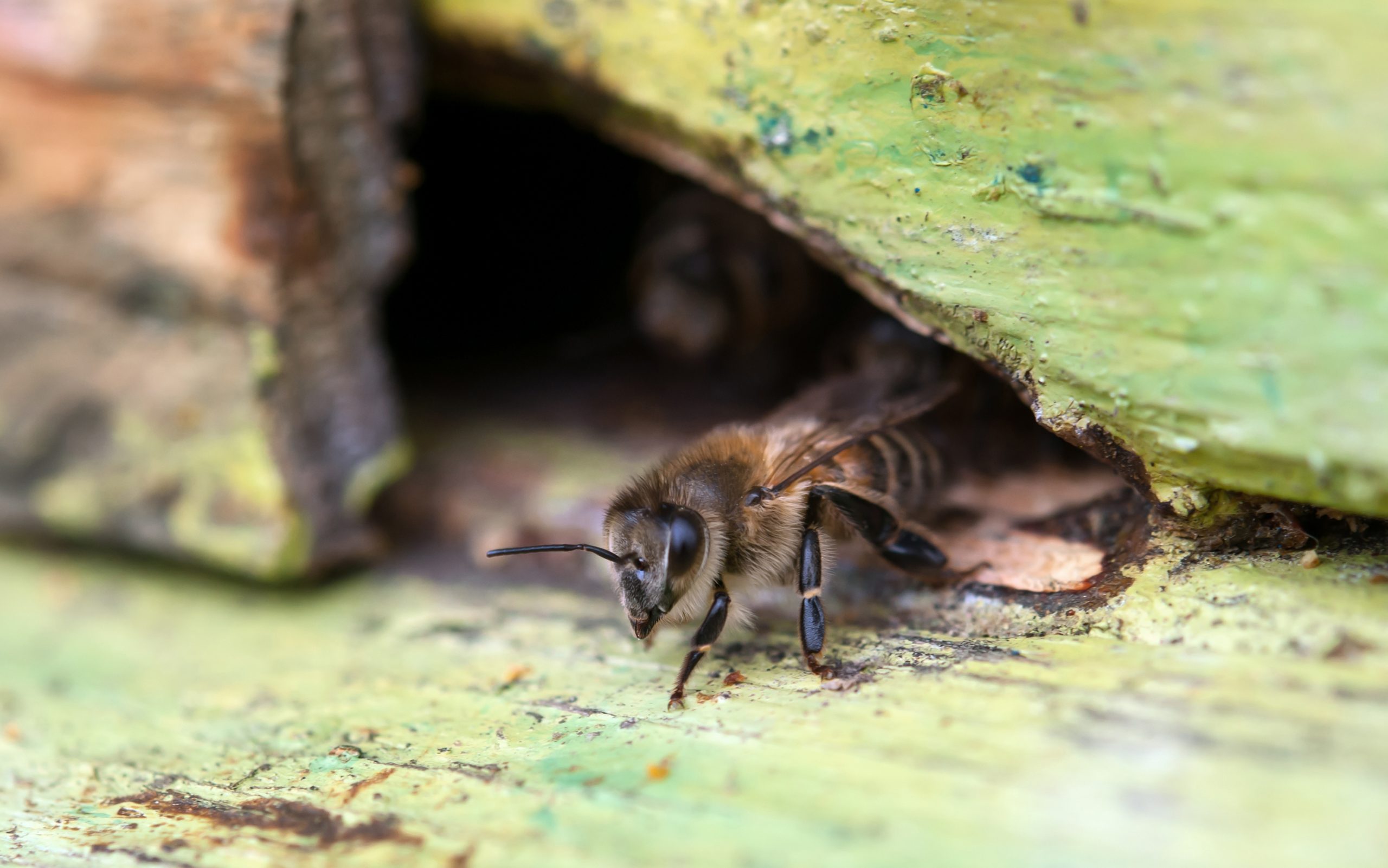Imagine this: you’re chilling at home, minding your own business, when suddenly you hear a faint buzzing sound. It’s not coming from outside—it’s inside your ear. WHAT THE HECK IS GOING ON?! Welcome to the world of “bees in ears,” a bizarre and unsettling sensation that has left many people scratching their heads (and probably their ears too). But here’s the thing—it’s not always literal bees. Sometimes, it’s something way more complex than you’d think.
This phenomenon isn’t just some random internet trend; it’s a real issue for some folks. Whether it’s caused by actual insects, medical conditions, or even stress, understanding what’s happening is key to finding relief. And trust me, nobody wants to live with the constant feeling of tiny wings flapping around in their head.
So, buckle up because we’re diving deep into the buzzing world of bees in ears. From potential causes to solutions, we’ll cover it all. By the end of this article, you’ll have a clearer picture of what might be causing that annoying buzz and how to deal with it. Let’s get started!
Read also:Mary J Blige Dating The Untold Love Story Behind The Queen Of Hiphop Soul
What Are Bees in Ears?
Alright, let’s break it down. When people talk about “bees in ears,” they’re usually referring to one of two things: either there’s an actual insect in there, or it’s a metaphorical sensation caused by other factors. If it’s the first one, well, that’s pretty straightforward—get that bug out ASAP! But if it’s the second one, things can get a little tricky.
Some folks describe this sensation as a persistent buzzing or humming noise that feels like there’s movement inside their ear canal. Others say it’s more of a psychological sensation, like their mind is playing tricks on them. Whatever the case may be, it’s no fun. And yeah, sometimes it’s not even bees—it could be flies, moths, or any other creepy-crawly critter.
How Common Is This Phenomenon?
You’d be surprised by how many people experience this weird sensation. According to a study published in the Journal of Audiology, about 10% of adults report hearing strange noises in their ears at some point in their lives. While most cases aren’t serious, they can still be super annoying and disruptive.
- About 15% of these cases involve actual insects.
- Another 25% are linked to tinnitus or ear infections.
- The remaining 60% are often attributed to stress, anxiety, or neurological issues.
So yeah, you’re not alone in this weird journey. Lots of people deal with similar stuff, and there are ways to handle it.
Causes of Bees in Ears
Now that we’ve established what “bees in ears” actually means, let’s dive into the possible causes. Spoiler alert: it’s not always literal bees. Here are some of the most common culprits behind that buzzing sensation:
1. Literal Insects in Your Ear
Let’s tackle the obvious one first. Sometimes, bugs really do crawl into your ear. It sounds like a nightmare, but it happens more often than you’d think. Insects are attracted to warmth, moisture, and dark spaces—basically, everything your ear provides. Gross, right?
Read also:Shantel Vansanten And Robert Buckley A Deep Dive Into Their Love Story Careers And More
Here’s the deal: if you suspect there’s a bug in your ear, don’t panic. Avoid using cotton swabs or sharp objects to try and remove it, as this can push the insect further in and cause damage. Instead, tilt your head and let gravity do its thing. If that doesn’t work, seek medical help immediately.
2. Tinnitus
Tinnitus is a condition characterized by ringing, buzzing, or humming sounds in the ears without an external source. It affects millions of people worldwide and can be caused by a variety of factors, including:
- Exposure to loud noises
- Hearing loss
- Ear infections
- Stress and anxiety
While tinnitus isn’t life-threatening, it can significantly impact your quality of life. If you suspect you have tinnitus, consult an audiologist for proper diagnosis and treatment options.
3. Ear Infections
Ear infections are another common cause of buzzing sensations. When bacteria or viruses invade your ear canal, they can cause inflammation and irritation, leading to strange noises. Symptoms of an ear infection include:
- Pain or discomfort in the ear
- Drainage from the ear
- Fever
- Difficulty hearing
If you experience any of these symptoms, it’s important to see a doctor right away. Untreated ear infections can lead to serious complications.
Psychological Factors Behind Bees in Ears
Believe it or not, your mind can play a big role in how you perceive sounds. Stress, anxiety, and other mental health issues can amplify normal bodily sensations, making them seem more intense than they really are. This is often referred to as “somatosensory amplification.”
For example, if you’re already on edge, the faint buzzing of a fly nearby might feel like it’s happening inside your ear. Or, if you’ve been worrying about bugs crawling into your ears, your brain might start convincing you that it’s happening even when it’s not. Crazy, right?
How to Manage Psychological Causes
If you think stress or anxiety might be contributing to your buzzing sensation, here are a few tips to help you manage:
- Practice deep breathing exercises to calm your nervous system.
- Engage in mindfulness meditation to stay grounded in the present moment.
- Limit exposure to triggering stimuli, such as news stories about bugs in ears.
- Consider speaking with a therapist if the sensation becomes overwhelming.
Remember, taking care of your mental health is just as important as taking care of your physical health.
Medical Treatments for Bees in Ears
So, what do you do if the buzzing won’t go away? Fortunately, there are several medical treatments available depending on the underlying cause. Here’s a quick rundown:
1. Removing Insects
If you have an actual bug in your ear, a doctor can safely remove it using specialized tools. In some cases, they may use oil or saline solution to kill the insect before removal. Don’t try this at home, though—it’s best to leave it to the professionals.
2. Treating Tinnitus
Tinnitus can be managed through a variety of methods, including:
- Sound therapy to mask the buzzing noise
- Hearing aids for those with hearing loss
- Cognitive behavioral therapy (CBT) to address psychological factors
While there’s no cure for tinnitus, these treatments can help reduce its impact on your daily life.
3. Addressing Ear Infections
Ear infections are typically treated with antibiotics or antifungal medications, depending on the cause. Over-the-counter pain relievers can also help manage discomfort while the infection clears up.
Home Remedies for Bees in Ears
While professional treatment is always recommended, there are a few home remedies you can try to alleviate mild symptoms:
1. Warm Compress
Applying a warm compress to your ear can help reduce inflammation and ease discomfort. Just make sure it’s not too hot to avoid burns.
2. White Noise Machines
If the buzzing is keeping you up at night, a white noise machine can provide soothing background sounds to drown it out.
3. Herbal Remedies
Some people swear by herbal remedies like garlic oil or tea tree oil to treat ear infections naturally. However, it’s important to consult a healthcare provider before trying anything new.
Prevention Tips for Bees in Ears
Prevention is always better than cure, so here are a few tips to help you avoid those pesky buzzing sensations:
- Wear earplugs when spending time outdoors, especially in areas with lots of insects.
- Keep your ears clean and dry to prevent infections.
- Limit exposure to loud noises to protect your hearing.
- Practice good mental health habits to reduce stress and anxiety.
By taking these precautions, you can significantly lower your risk of experiencing “bees in ears.”
Conclusion: Taking Action Against Bees in Ears
Alright, we’ve covered a lot of ground here. From literal bugs to psychological sensations, “bees in ears” can manifest in many different ways. The key takeaway? Don’t ignore those buzzing sounds—get them checked out by a professional if they persist.
And hey, don’t forget to share this article with your friends and family. Who knows? You might just save someone from a nightmarish experience. Until next time, stay safe and keep those ears bug-free!
Table of Contents
- What Are Bees in Ears?
- How Common Is This Phenomenon?
- Causes of Bees in Ears
- Psychological Factors Behind Bees in Ears
- Medical Treatments for Bees in Ears
- Home Remedies for Bees in Ears
- Prevention Tips for Bees in Ears
- Conclusion


